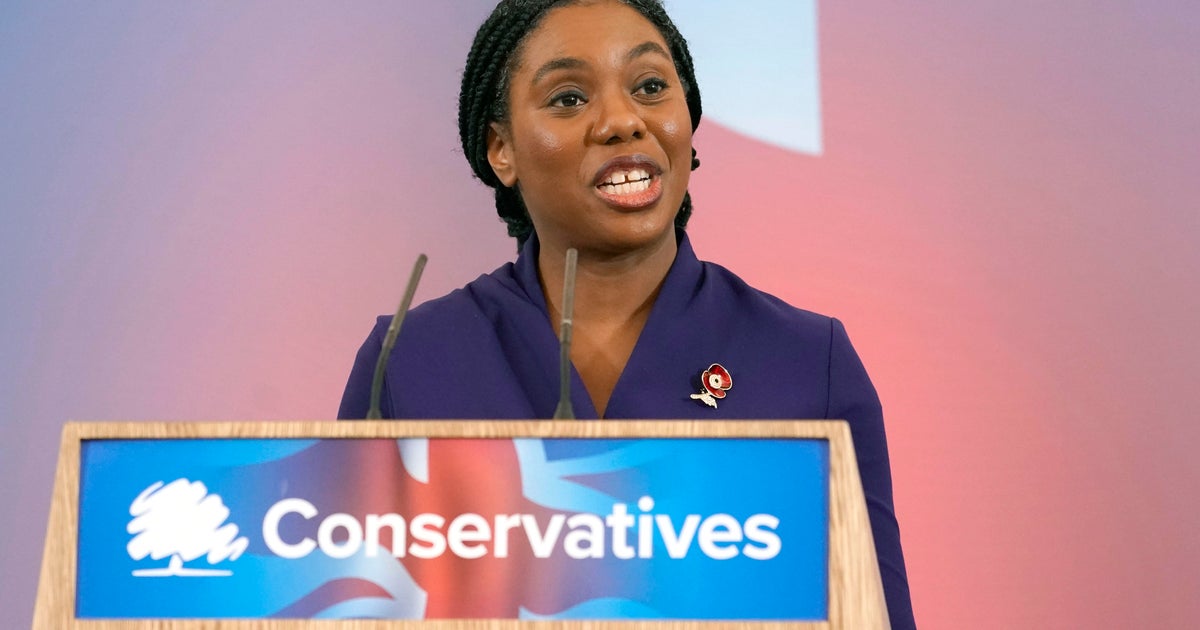CBS News
Phoenix police discriminate, violate civil rights and use excessive force, Justice Department says

Phoenix police violate people’s rights, discriminate against Black, Hispanic and Native American people when enforcing the law and use excessive force, including unjustified deadly force, the U.S. Justice Department said Thursday.
The government found a “pattern or practice” of the violations, saying the police department unlawfully detains homeless people and disposes of their belongings and discriminates against people with behavioral health disabilities when dispatching calls for help and responding to people who are in crisis. And the Justice Department said Phoenix police had violated the rights of people engaged in protected speech.
The sweeping investigation — which CBS’ Phoenix affiliate KPHO-TV reports cost the city at least $7.5 million — found “pervasive failings” that have “disguised and perpetuated” problems for years, according to the report.
The Justice Department said certain laws, including drug and low-level offenses, were enforced more severely by Phoenix officers against Black, Hispanic and Native American people than against whites who engaged in the same conduct.
Investigators found Phoenix police use on “dangerous tactics that lead to force that is unnecessary and unreasonable.”
“Our investigation also raised serious concerns about PhxPD’s treatment of children and the lasting impact aggressive police encounters have on their wellbeing,” read another part of the report, according to KPHO-TV.
Phoenix police did not immediately respond to a request for comment.
Attorney General Merrick Garland called the release of the report “an important step toward accountability and transparency.”
“We are committed to working with the City of Phoenix and Phoenix Police Department on meaningful reform that protects the civil rights and safety of Phoenix residents and strengthens police-community trust,” he said in a statement.
Assistant Attorney General Kristen Clarke of the Justice Department’s Civil Rights Division said the findings “provide a blueprint and a roadmap that can help transform the police department, restore community trust and strengthen public safety efforts in one of America’s largest cities.”
The investigation launched in August 2021. The police force in Phoenix has been criticized in recent years for its treatment of protesters in 2020, deaths of people who were restrained by officers, and a high number of shootings by officers.
The report also found that Phoenix police detain and arrest people who are homeless without reasonable suspicion that they committed a crime, and unlawfully dispose of their belongings.
“A person’s constitutional rights do not diminish when they lack shelter,” the report says.
The Justice Department zeroed on the city’s 911 operations. Even though the city has invested $15 million to send non-police responders to mental health calls, the city hasn’t given the 911 call-takers and dispatchers necessary training.
“Too frequently, they dispatch police alone when it would be appropriate to send behavioral health responders,” the Justice Department said. Officers assume people with disabilities are dangerous and resort to force rather than de-escalation tactics, leading to force and criminal consequences for those with behavioral health disabilities, rather than finding them care, the Justice Department said.
The Justice Department found that police use unjustified force against people who are handcuffed and accused of low-level crimes.
“Officers rely on less-lethal force to attempt to resolve situations quickly, often when no force is necessary and without any meaningful attempt to de-escalate,” the report said.
Police shoot projectiles at people without evidence the person is an immediate threat, the report said, citing the case of a man who was accused of taking his mother’s car without permission.
“The man was leaving a laundromat when an officer immediately fired Pepperballs at him, and continued to fire after the man was on his knees and had curled his body onto the sidewalk,” the report said.
CBS News
Saturday Sessions: Hippo Campus performs “Everything At Once”

Watch CBS News
Be the first to know
Get browser notifications for breaking news, live events, and exclusive reporting.
CBS News
Britain’s Conservative Party picks Kemi Badenoch as leader after crushing election defeat

Britain’s Conservative Party on Saturday elected Kemi Badenoch as its new leader as it tries to rebound from a crushing election defeat that ended 14 years in power.
The first Black woman to lead a major British political party, Badenoch (pronounced BADE-enock) defeated rival lawmaker Robert Jenrick in a vote of almost 100,000 members of the right-of-center Conservatives.
She got 53,806 votes in the online and postal ballot of party members, to Jenrick’s 41,388.
Badenoch replaces former Prime Minister Rishi Sunak, who in July led the Conservatives to their worst election result since 1832. The Conservatives lost more than 200 seats, taking their tally down to 121.
The new leader’s daunting task is to try to restore the party’s reputation after years of division, scandal and economic tumult, hammer Labour Prime Minister Keir Starmer’s policies on key issues including the economy and immigration, and return the Conservatives to power at the next election, due by 2029.
Alberto Pezzali / AP
“The task that stands before us is tough but simple,” Badenoch said in a victory speech to a roomful of Conservative lawmakers, staff and journalists in London. She said the party’s job was to hold the Labour government to account, and to craft pledges and a plan for government.
Addressing the party’s election drubbing, she said “we have to be honest — honest about the fact that we made mistakes, honest about the fact that we let standards slip.”
“The time has come to tell the truth, to stand up for our principles, to plan for our future, to reset our politics and our thinking, and to give our party, and our country, the new start that they deserve,” Badenoch said.
A business secretary in Sunak’s government, Badenoch was born in London to Nigerian parents and spent much of her childhood in the West African country.
The 44-year-old former software engineer depicts herself as a disruptor, arguing for a low-tax, free-market economy and pledging to “rewire, reboot and reprogram” the British state.
A critic of multiculturalism and self-proclaimed enemy of wokeness, Badenoch has criticized gender-neutral bathrooms and government plans to reduce U.K. carbon emissions. During the leadership campaign she drew criticism for saying that “not all cultures are equally valid,” and for suggesting that maternity pay was excessive.
Tim Bale, professor of politics at Queen Mary University of London, said the Conservative Party was likely to “swing towards the right both in terms of its economic policies and its social policies” under Badenoch.
He predicted Badenoch would pursue “what you might call the boats, boilers and bathrooms strategy …. focusing very much on the trans issue, the immigration issue and skepticism about progress towards net zero.”
Alberto Pezzali / AP
While the Conservative Party is unrepresentative of the country as a whole — its 132,000 members are largely affluent, older white men – its upper echelons have become markedly more diverse.
Badenoch is the Tories’ third female leader, after Margaret Thatcher and Liz Truss, both of whom became prime minister. She’s the second Conservative leader from a non-white background, after Sunak, and the first with African roots. The center-left Labour Party, in contrast, has only ever been led by white men.
In a leadership contest that lasted more than three months, Conservative lawmakers reduced the field from six candidates in a series of votes before putting the final two to the wider party membership.
Both finalists came from the right of the party, and argued they can win voters back from Reform U.K., the hard-right, anti-immigrant party led by populist politician Nigel Farage that has eaten away at Conservative support.
But the party also lost many voters to the winning party, Labour, and to the centrist Liberal Democrats, and some Conservatives worry that tacking right will lead the party away from public opinion.
Starmer’s government has had a rocky first few months in office, beset by negative headlines, fiscal gloom and a plummeting approval rating.
But Bale said that the historical record suggests the odds are against Badenoch leading the Conservatives back to power in 2029.
“It’s quite unusual for someone to take over when a party gets very badly beaten and manage to lead it to election victory,” he said. “However, Keir Starmer did exactly that after 2019. So records are there to be broken.”
CBS News
Saturday Sessions: Hippo Campus performs “Paranoid”

Watch CBS News
Be the first to know
Get browser notifications for breaking news, live events, and exclusive reporting.









